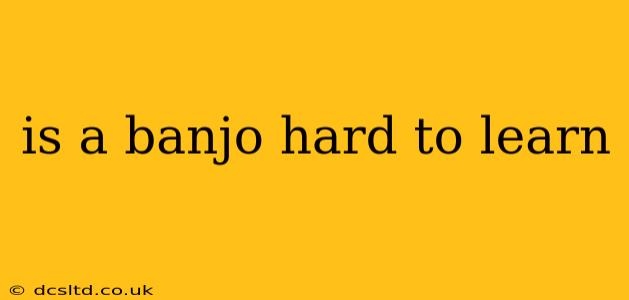Is a Banjo Hard to Learn? A Comprehensive Guide
The question of whether the banjo is hard to learn is a common one, and the answer, like most things in life, is nuanced. It depends on several factors, including your musical background, your learning style, your dedication, and your definition of "hard." While some aspects are undeniably challenging, many find the banjo a rewarding instrument to master. Let's delve into the details.
What Makes the Banjo Challenging?
Several aspects of the banjo can present initial difficulties for beginners:
-
Unique Tuning: The banjo's tuning (typically gDGBD, though variations exist) differs from many other common instruments like guitar or piano. This can initially feel awkward and require time to adjust.
-
Three-Finger Style: Many banjo players use a "Scruggs style" (named after Earl Scruggs), a complex three-finger picking technique that requires significant coordination and practice. Mastering this style takes dedicated time and effort. However, other styles exist (like clawhammer) that might be easier to pick up for some.
-
String Tension: Banjo strings are typically quite tight, requiring a bit more finger strength and dexterity, especially in the early stages. This can lead to hand cramps for new players.
-
Finding a Good Teacher: A skilled instructor can significantly accelerate your progress and help you avoid bad habits, but finding a good banjo teacher might require some searching.
What Makes the Banjo Easier Than Expected?
Despite the challenges, several factors can make learning the banjo easier than you might anticipate:
-
Simple Chords: While advanced banjo playing involves complex techniques, basic chords are relatively easy to learn, allowing you to play simple songs quickly.
-
Many Learning Resources: The internet is packed with tutorials, videos, and online courses designed for banjo beginners, making self-teaching more accessible than ever.
-
Immediate Gratification: You can begin playing simple melodies and songs surprisingly quickly, providing immediate feedback and encouraging continued practice. This early success can be highly motivating.
-
Strong Community: The banjo community is welcoming and supportive. Online forums and local groups provide excellent opportunities to connect with other players, share tips, and find encouragement.
How Long Does it Take to Learn Banjo?
There's no single answer to this question. Some individuals with prior musical experience might grasp the basics within a few weeks, while others may need several months. Mastery of advanced techniques, such as complex Scruggs style picking, can take years of dedicated practice. Consistency is key. Even short, regular practice sessions are more effective than infrequent marathon sessions.
What are the different banjo styles?
There are several distinct banjo styles, each with its own techniques and characteristics. The most common include:
-
Scruggs Style (Three-Finger Style): This fast-paced style, popularized by Earl Scruggs, uses a complex three-finger picking pattern.
-
Clawhammer Style (Frailing): This older style involves striking the strings with the thumb and index finger. It often produces a more percussive sound.
-
Bluegrass Banjo: Often incorporates Scruggs style and emphasizes fast, melodic lines.
-
Old-Time Banjo: Frequently employs clawhammer style and is associated with folk music traditions.
Choosing a style that suits your preferences and learning style is crucial.
Is it better to learn banjo with a teacher?
While self-teaching is possible, having a qualified banjo teacher can significantly accelerate your learning and help you avoid developing bad habits. A teacher provides personalized feedback, structured lessons, and a supportive environment. However, the cost of lessons should be factored into your decision.
Conclusion
Ultimately, the difficulty of learning the banjo depends on your individual circumstances and goals. While certain aspects present challenges, the accessibility of resources and the rewarding nature of the instrument make it a worthwhile pursuit for dedicated learners. Start slowly, focus on consistent practice, and enjoy the journey!
